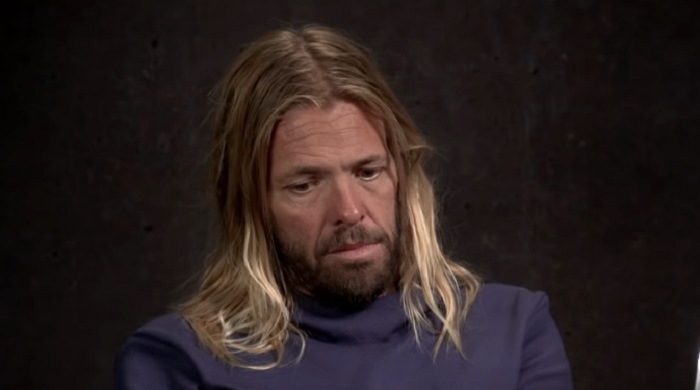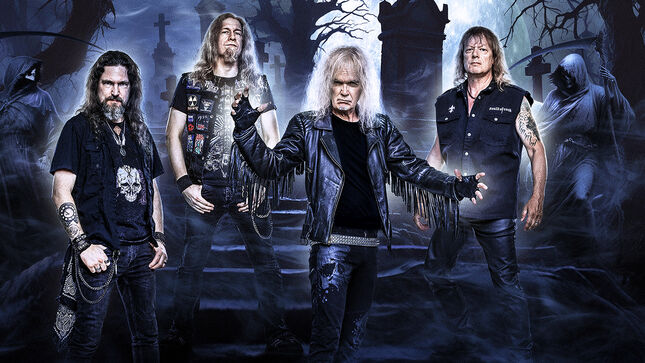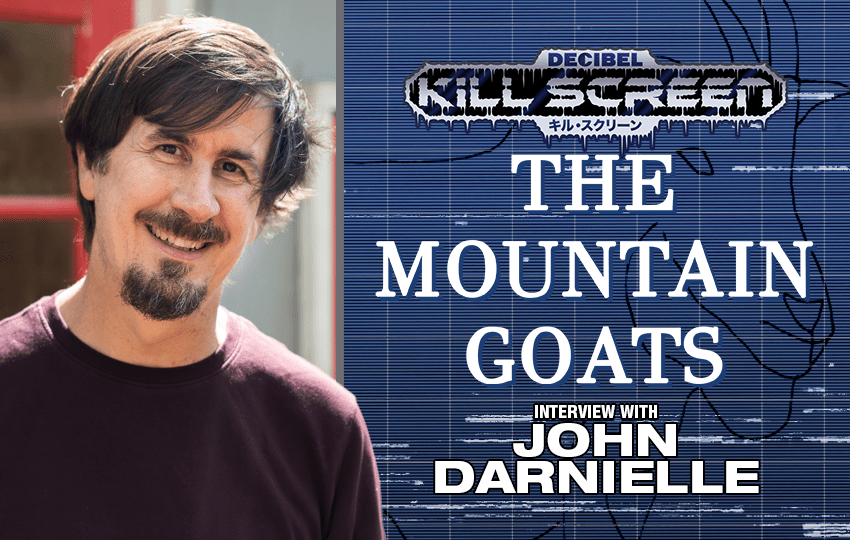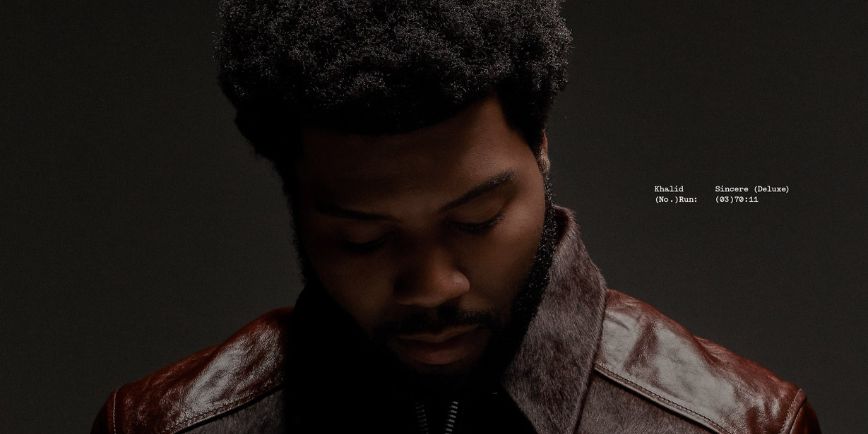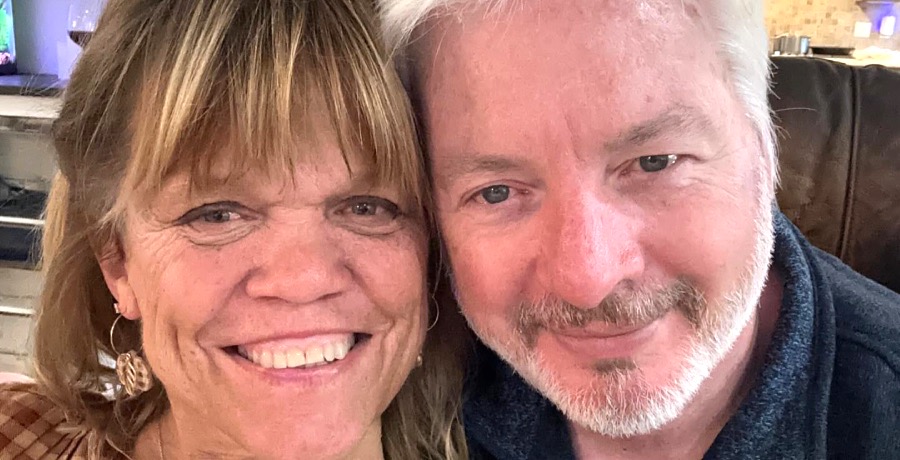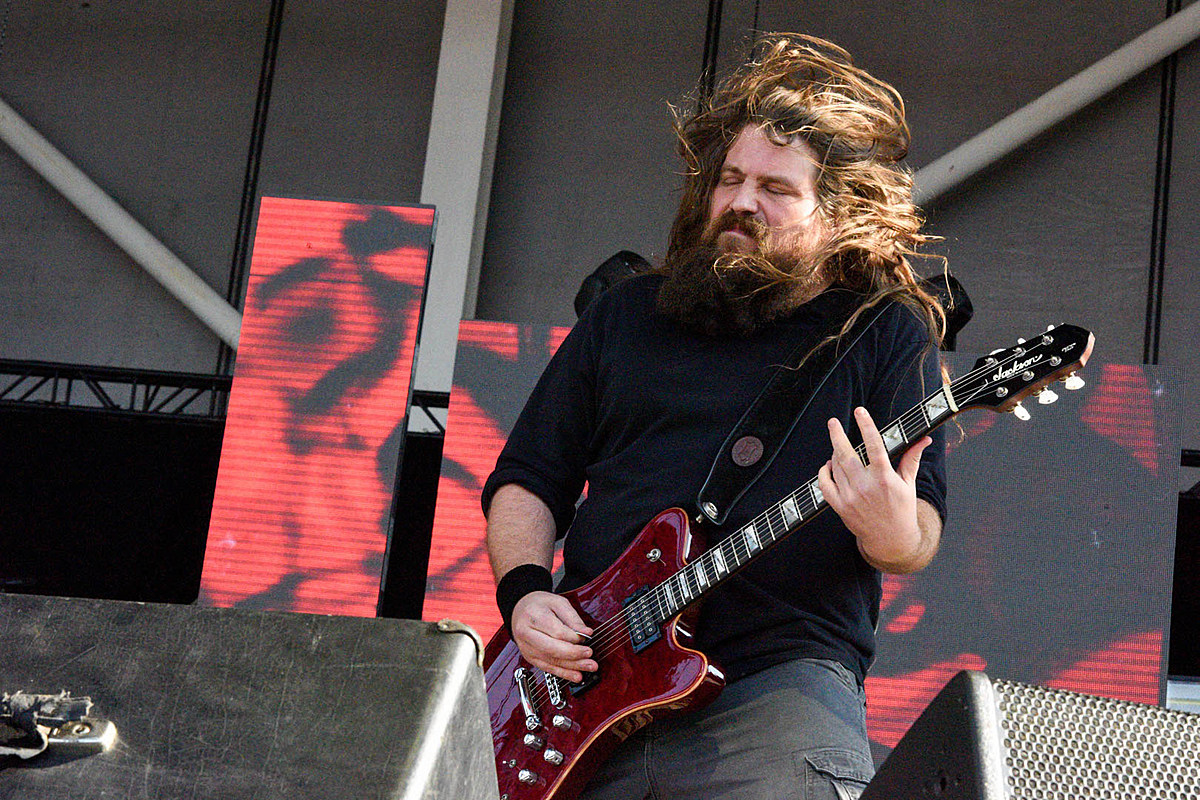Lamb of God’s Mark Morton was the latest guest on Full Metal Jackie’s weekend radio program, chatting about the band’s new record, Omens, and some recent highlights on the road, which included the use of emergency fill-in members that presented a difficult but “fun” challenge.
Omens comes just two years after Lamb of God issued their self-titled record and it’s a genuine momentum builder as the group continues to dominate in their third decade.
In recording this one, the band entered a legendary studio and Morton says the vibes and energy from the room translated in their work. Tracking live with everyone in the studio was also a fresh way of doing things, which helped generate more creative energy as well.
On the road, Lamb of God have faced new tests as well, utilizing fill-in musicians in both planned and emergency situations. It was “scary” in the moment, says Morton, but the challenge was something he now feels was a “fun” one and he’s proud that they managed to power through such difficulty.
Read the full interview below.
Randy [Blythe] has described the new record as an extremely pissed off record. What makes Omens even more angry and volatile than any other Lamb of God album?
I think that the last couple years have been hard for everyone with all of the Covid restrictions and people having to change their routines — people [were] affected by the virus and everything that had happened around it. In [the United States] there’s a lot of heightened emotions around politics and it feels like a time of turmoil. It can feel a little bit chaotic if you let it. I don’t want to speak too much for Randy’s quote on the themes on the record and how pissed off they are, but I I think some of it is rooted in those things.
Omens was recorded in Los Angeles at Henson Recording Studios, which used to be A&M Studios. What makes the history of a studio palpable and how does it encourage your own recording sessions?
It is a cool experience to work there. We’ve worked in a bunch of great studios and facilities that are fantastic for vibe and that kind of thing.
Henson is super historic. So many amazing sessions happened there. Even before that, it was Charlie Chaplain’s production facility back in… I guess the ’20s is when he built it [editor’s note: it was built in 1917]. There’s just so much history there and we were there for a month, pretty much every day. The vibe of being in a place that has that history and that kind of track record of great creative energy around it makes a difference.
The setting you’re in when you’re recording really makes a difference because there’s something about the vibe in the room and there was a lot of vibe in these sessions.
The real story around this record, for me, is so different. We recorded it with everyone live in the room together, which is not really how records are done that often anymore. It was just a really different kind of process for us in a really cool environment for us to engage that process in.
Lamb of God, “Nevermore” Music Video
One of the starting points for songwriting is a guitar riff. When you hear a riff, what’s indicative that it might be a good building block for a song?
It’s a magic thing when a riff just kind of channels through you and it just gives you that feeling. The most immediate thing for me is that it’s fun to play and as I’m playing it, I can feel the groove. Groove is really where it’s at for me in terms of riffs. If I’m playing something and I can feel that groove and it makes me wanna move while I’m playing it, that’s usually a good sign that something’s starting to cook.
Head here to listen to and follow Loudwire’s playlist of 2022’s Best Metal Songs, featuring Lamb of God and more.
This the band’s ninth album, tenth if you count Burn the Priest [before changing the band name to Lamb of God]. As a musician, what’s changed most about your sense of self-expression over the course of your recorded history?
It’s been a process of getting to a point of being more about the song. These days, I’m more interested in the song that’s in its entirety than I am the guitar part or my guitar part or how many notes I can squeeze in or [asking], “Where’s the solo?”
Those kinds of things maybe would’ve been a little more in my mindset earlier in our career. Now I just really want to write great songs. I’ve learned that, at times, writing great songs and being a part of them requires a little bit of humility in stepping back and leaving room for other things to happen and to create space for each instrument to shine. Those are things you learn over time as a songwriter.
Brandon Wolford – IG @brandonwolfywolford
During a recent run of shows, it was necessary for various people to fill in for Randy and John Campbell. What do you learn about band dynamics when people are absent?
You learn how much you’re used to playing with each other because when you bring someone else in, there’s inevitably tiny changes in the way they feel things or hear things that, as players, we feel and hear and onstage.
Typically, we have the opportunity to work those things out. We’ve had Phil Demmel [fill in for Willie Adler] and he is legendary guitar player and big name in the metal world in his own right and super pro. We’ve known him for decades, so he kind of slides right in and knows the stuff. We gel really well with him.
When Randy had to miss some shows, that was unexpected. I can say now that it was fun because the challenge of it all was fun. I don’t like the reason he missed the shows [Covid] and I hope we didn’t disappoint too many fans by him not being there. But the response to having those other guys hop in and keep the show rolling was a really great and very compassionate reaction to the way we navigated that.
It was really challenging for us as a band and a little scary. I hope we don’t have to do it again, but I do enjoy that we were able to rise to that challenge and still keep the ball rolling out there on the road.
Thanks to Mark Morton for the interview. Get your copy of ‘Omens’ here and follow Lamb of God on Instagram, Facebook, Twitter and Spotify. Lamb of God’s U.S. tour ends Oct. 20 and tickets for remaining stops can be purchased here.
The ‘Big 4’ of 17 Metal Subgenres
Everyone knows the ‘Big 4’ of thrash metal, but what about some other styles of metal?






